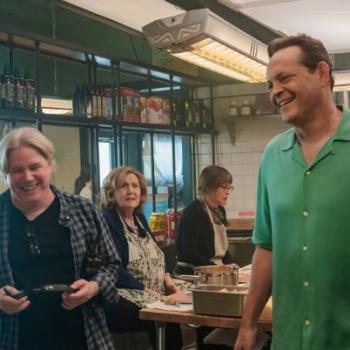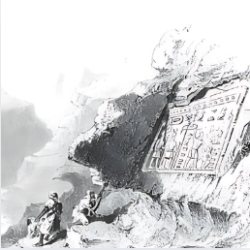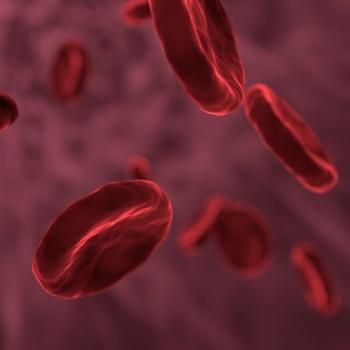Editors' Note: This article is part of the Patheos Public Square on Religion and Visual Art. Read other perspectives here.
In one of my earliest memories, I am perhaps five years old. I am standing in my parents' bedroom with a stack of my artwork that my mother has saved. Drawings in pencil and crayon, paintings in tempera and watercolor and finger-paint: this is the artwork that Mom has gathered from my early years. The only stack. And I am systematically shredding each piece.
By the time my mother walks in, I have made it almost to the bottom of the stack. Horrified, Mom asks me why I've done this. "Because they're not any good!" I reply. I don't know where I got that idea; call it a precocious inner critic.
Although I considered myself creative in other ways, only in my last year of seminary did I begin to pursue visual art seriously. It was the medium of paper collage that enticed me. I had believed that an artist needed to be able to paint and draw; clearly, since the age of five, I had not thought of myself as someone who could do either of these things well. Yet I found that something transforming happened in playing with paper — in taking those skills, picked up in kindergarten, of cutting, tearing, pasting, and piecing together.
Collage became a powerful spiritual practice for me; the drafting table is one of the places where I pray best. It provides a space between and beneath and beyond words, a thin place where memory and hope meet. The practice of collage also provides an image for understanding my work and my life. In much the same way that I sit at my drafting table and take the scraps to piece together a new creation, God does this within me. God takes everything: experiences, stories, memories, relationships, dreams, prayers — all those pieces, light and dark, rough and smooth, jagged and torn — and creates anew from them. I have learned to think of God as the consummate recycler: in God's economy, nothing is wasted. Everything – everything — can be used. Transformed. Redeemed.
Now More Than Ever
In the wake of the attacks on the United States that took place on September 11, 2001, I exchanged some correspondence with a lifelong friend who lives in New York City. A professional artist who provided my first art lessons as a child, Tom was walking to work when he saw the plane fly into the first tower of the World Trade Center. Writing soon after the attack, he commented to me, "We need artists now more than ever."
I have thought often about his comment in the years that have followed the devastation of that day. My artist friend, who has witnessed and shared in the grief and healing of the city he calls home, continues to create and to offer his artful gifts to the world. Hundreds of miles away, in a studio in central Florida, I continue to work at sharing my own creative gifts. What I fashion in my studio will not provide a cure for cancer, an end to poverty, or a cessation of terrorism. It is, however, what I have to offer the world: an act of hope, a commitment to creation amid devastation, a practice that is not removed from the brokenness of the world but rather is a tangible, tactile, transforming prayer that arises from within it.
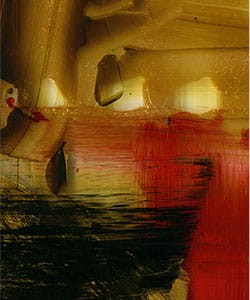 |
| Gathering the Fragments © Jan Richardson |
For all that can be said about the role of the artist in the life of the church — and, thankfully, more and more is being said about this, chipping away at the widespread belief that art is a luxury and is tangential to our call as the body of Christ — what it comes down to is this: artists are people who know something about putting the pieces together. Working in the stunning array of forms that the arts take, artists are people willing to turn toward the brokenness of the world, choosing to remain present to the scraps and shards until we begin to imagine what the fragments could become, and what new life God could breathe into them.
This call, of course, does not belong solely to artists. Turning toward what is broken, staying present to the pieces, imagining what is possible, using every medium and means to bring about wholeness: this vocation belongs to each of us. This is the call of every member of the body of Christ, broken and redeemed, giving ourselves to God's transforming work in and through us for the life of the world.
Now more than ever.
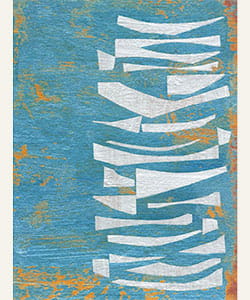 |
| Born of Water, Born of Spirit © Jan Richardson |
